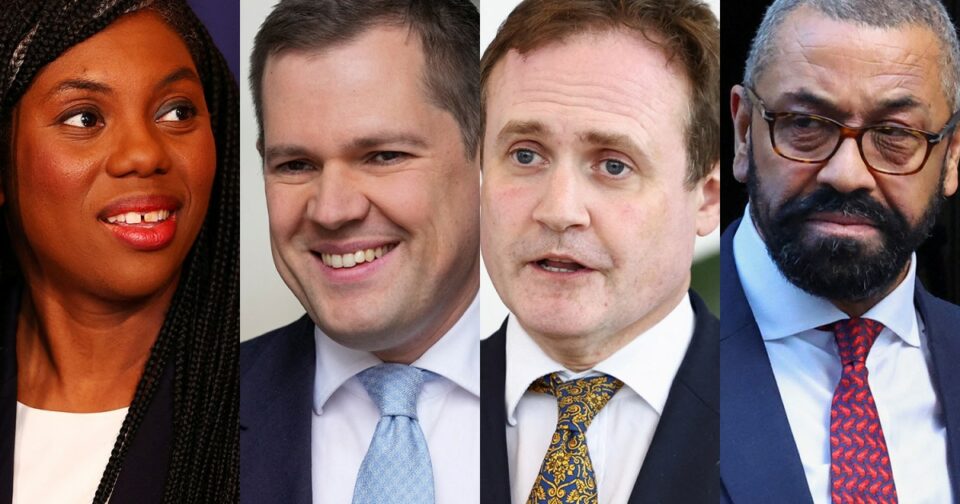Generating buzz as possible candidates. Each brings their own unique blend of experience and policy priorities to the table, further enriching the debate about the future direction of the Conservative Party.
Racing to the Top: Meet the Contenders for UK Conservatives Leadership
The race for the leadership of the Conservative Party in the UK is heating up, with several prominent figures jostling for position to take over from the current leader. As the country grapples with various political, economic, and social challenges, the outcome of this leadership contest could have far-reaching implications for the future of the ruling party and the direction of the nation as a whole.
Let’s take a closer look at the contenders vying for the top spot in the UK’s Conservative Party, and what each of them brings to the table in this high-stakes competition.
- Rishi Sunak
Rishi Sunak, the current Chancellor of the Exchequer, has emerged as a key player in the race to lead the Conservative Party. With a background in investment banking and a reputation for fiscal prudence, Sunak has positioned himself as a steady hand in turbulent times. His handling of the economic fallout from the COVID-19 pandemic has won him plaudits from many within the party, and he has been touted as a potential consensus candidate capable of uniting different factions within the party.
- Liz Truss
Liz Truss, the current Foreign Secretary, has also thrown her hat into the ring for the Conservative Party leadership. Truss is known for her vocal advocacy of free-market policies and a more assertive foreign policy stance. As a prominent female figure within the party, she has garnered support from those who are eager to see a more diverse leadership team at the top.
- Jeremy Hunt
Jeremy Hunt, a former Health Secretary and Foreign Secretary, is another contender for the Conservative Party leadership. Hunt’s extensive experience in government and his measured approach to policy matters make him a respected figure within party ranks. His emphasis on improving public services and addressing social issues could resonate with a broad spectrum of party members and voters.
- Kwasi Kwarteng
Kwasi Kwarteng, the Secretary of State for Business, Energy, and Industrial Strategy, is also in the running for the Conservative Party leadership. Kwarteng’s advocacy of pro-business policies and efforts to drive economic growth has earned him a following among those who prioritize economic prosperity and innovation.
- Other Potential Contenders
In addition to the aforementioned figures, other potential contenders for the Conservative Party leadership are also making their presence felt. Names such as Sajid Javid, the former Chancellor of the Exchequer, and Priti Patel, the Home Secretary, are
Conservative Leadership Race: A New Era for the UK
The United Kingdom is currently in the midst of a significant political transition, with Conservative politicians Kemi Badenoch, Robert Jenrick, Tom Tugendhat and James Cleverly vying for the position of leader of the opposition. This leadership race comes in the wake of the Conservative Party’s worst electoral defeat since its establishment in 1834.
Rishi Sunak, a former prime minister, stepped down after a disastrous performance in the July 4 general election. The party’s parliamentary members will vote on October 9 and 10 to narrow down the field to two candidates, with party membership eventually choosing their new leader.
The stakes are high as the new leader will have the opportunity to shape the future direction of one of the world’s most successful political parties. The Conservatives are currently divided between those who advocate for appeasing voters who turned towards Nigel Farage’s hard-right Reform movement and those who favor a return to David Cameron’s middle-ground politics.
This division can be attributed to several factors that contributed to their recent electoral defeat. The final years of Conservative rule were marked by scandal and chaos during an arduous Brexit process and challenges related to managing COVID-19. As they shift from leading government to life in opposition, it is crucial for them to understand why they faced such catastrophic results in July before widening their appeal beyond their core base.
Let’s take a look at each candidate:
Kemi Badenoch: Bringing Bold Ideas
Badenoch vows to lead and renew the Conservatives with her belief in meritocracy and aversion towards identity politics. Having been embroiled in controversies over her positions on transgender rights and colonialism, she has been described as outspoken but has also been accused of workplace bullying. She aims at transforming conservatism while drawing inspiration from Margaret Thatcher as her political hero.
James Cleverly: Challenging Party Norms
Cleverly stands out as an old ally of Boris Johnson who favors reviving controversial policies scrapped by current Labour government but also warns against imitating Farage’s hard-right stance post-election blues which he refers would be detrimental for his party’s recovery strategy amidst western society divestment (pg32-ln11). He seeks unity while advocating lower taxes and increased military spending.
Robert Jenrick: Immigration Reformer
Jenrick made headlines when he quit his immigration minister role claiming that measures against undocumented migration did not go far enough thus positioning him strongly into anti-immigration policies (pg38-ln3). His platform centers around migration reforms including legal routes aiming at wage suppression reduction through asylum seeker removal via European Convention departure specifically focusing on protestor forced visa revoke effort documented last September signaling an aggressive approach potentially solidifying him among right-wing candidates(pg38-ln18).
Tom Tugendhat: Veteran Diplomat
Tugendhat takes pride in his foreign policy experience dueled within Iraq serving British Army giving his campaign credentials that posit quite stern yet somewhat humorous boasting during both past leadership bids(pg40-ln1). He champions longstanding centrist narratives boasting arrests made on espionage activities further entrenching himself into this positioning though contrasting comments denouncing external intervention defaults( pg42- ln5).
As this dynamic contest unfolds, it remains imperative that each contender gauges public sentiment effectively whilst proposing resonating strategies aligning with unprecedent economic division marking contemporary western society.


